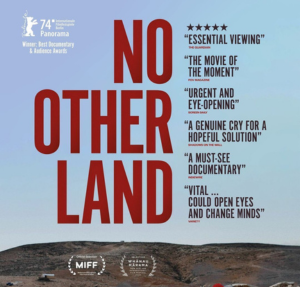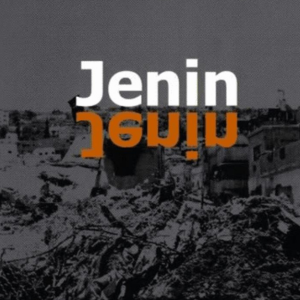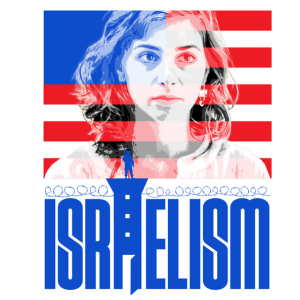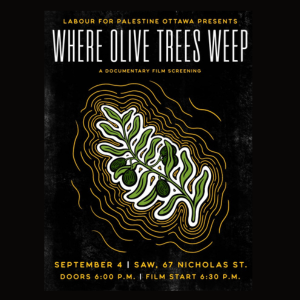
Documentary | Length: 94 mins (1 hr 34 mins) |
Topics: Nonviolent Resistance, West Bank Israeli terrorism, Ethnic Cleansing
Watch via YouTube (free): https://youtu.be/EcTN3g-b0iA
Why We Recommend This:
If you wondered why it seems that Palestinians haven’t tried non-violent resistance, this film dispels that myth. This excellent award-winning documentary produced by PBS details in live footage of how Palestinian people living in Bil’in, a West Bank village have tried the non-violent marches regularly in West Bank and all the peaceful methods that we have preached to save their homelands from Israeli land theft and demolitions of their homes and businesses. Yet, even then, the Israeli settler terrorists and Israeli military mercilessly shot at innocent protesters. Video footage from cameras that the IOF later destroyed documents how IOF shot Palestinian protesters directly in their knees to cause serious chronic pain or even amputations. This documentary gives you you a sense of how the 35,000 Palestinians marching in the 2018 Great March of Return faced similar experience as those in Bil’n.
Film Descriptions:
“Nominated for an Oscar®, 5 Broken Cameras is a deeply personal first-hand account of life and nonviolent resistance in Bil’in, a West Bank village where Israel is building a security fence. Palestinian Emad Burnat, who bought his first camera in 2005 to record the birth of his youngest son, shot the film and Israeli filmmaker Guy Davidi co-directed. The filmmakers follow one family’s evolution over five years, witnessing a child’s growth from a newborn baby into a young boy who observes the world unfolding around him. The film is a Palestinian-Israeli-French co-production.” — PBS
“An extraordinary work of both cinematic and political activism, 5 Broken Cameras is a deeply personal, firsthand account of non-violent resistance in Bil’in, a West Bank village threatened by encroaching Israeli settlements. Shot almost entirely by Palestinian farmer Emad Burnat, who bought his first camera in 2005 to record the birth of his youngest son, the footage was later given to Israeli co-director Guy Davidi to edit. Structured around the violent destruction of each one of Burnat’s cameras, the filmmakers’ collaboration follows one family’s evolution over five years of village turmoil. Burnat watches from behind the lens as olive trees are bulldozed, protests intensify, and lives are lost. ‘I feel like the camera protects me,’ he says, ‘but it’s an illusion.'” — Kino Lorber




